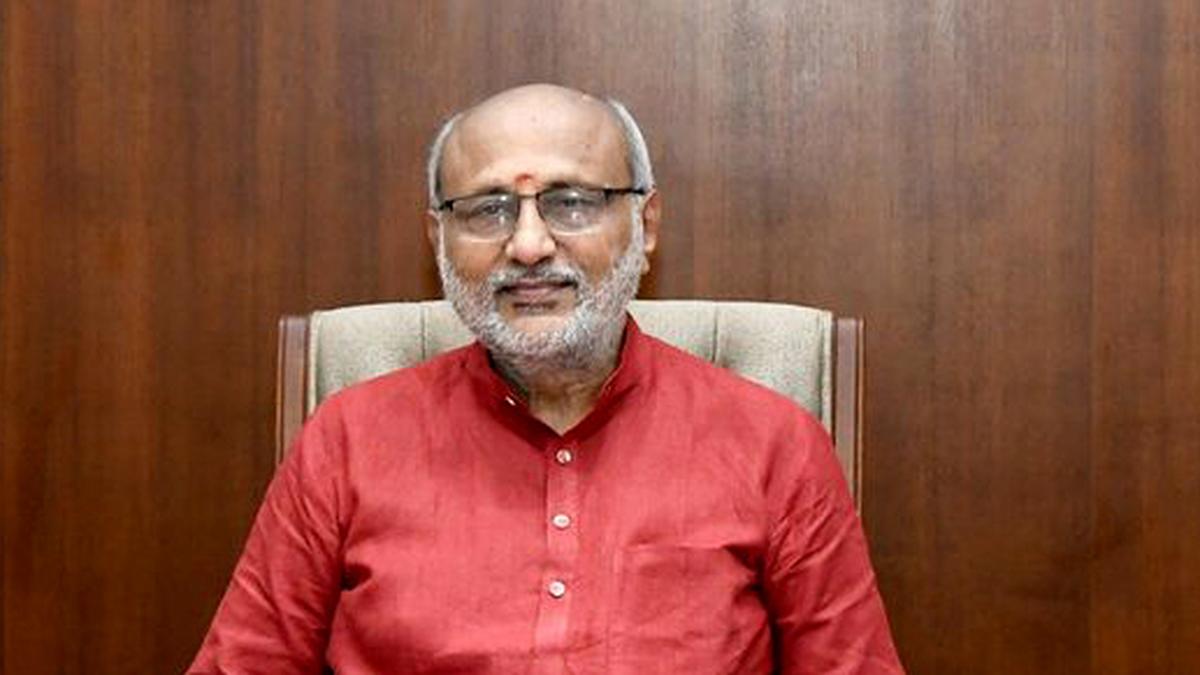CP Radhakrishnan Residence in Chennai Faces Hoax Bomb Threat Scare
CP Radhakrishnan, Vice President of India, became the target of a major security alert after an email threat was received late Wednesday evening. The message, which claimed that explosives had been planted at his residence in Chennai’s upscale Poes Garden area, triggered immediate action from law enforcement agencies.

Bomb detection and disposal squads, along with local police teams, were deployed within minutes. The entire area around Radhakrishnan’s residence was cordoned off, and residents were asked to stay indoors as a precaution. Sniffer dogs and bomb squads carried out a thorough search of the premises and surrounding areas. After an extensive inspection, authorities confirmed that the threat was a hoax and no explosives were found.
Officials stated that the email appeared similar to a series of fake threats recently sent to politicians, senior officials, and celebrities across Tamil Nadu. Despite being a false alarm, the incident led to heightened security measures and a review of ongoing threat patterns targeting prominent figures in the state.
Pattern of Hoax Threats Targets Prominent Figures in Tamil Nadu
Over the past few weeks, several hoax threats have been directed at well-known personalities, sparking concern among law enforcement agencies. The email received at CP Radhakrishnan’s office closely resembled previous cases involving other high-profile individuals.
Police sources revealed that cybercrime units are now working closely with intelligence agencies to trace the source of the messages. Preliminary analysis suggests the possibility of the same individual or group being behind the series of fake alerts. Officials are treating the issue seriously, given the potential for public panic and disruption such emails can cause.


The Chennai City Police Commissioner assured the public that there was “no cause for alarm,” adding that all security protocols were promptly followed. “Every alert, real or fake, is treated with utmost seriousness. Our teams were quick to act and ensured public safety at all times,” he said.
CP Radhakrishnan’s Office Responds with Calm and Cooperation
Following the panic, CP Radhakrishnan’s office released a statement expressing confidence in the quick response of Chennai’s police and bomb disposal units. Officials appreciated the efficiency of the security forces and reassured citizens that all necessary precautions had been taken.

“While the email turned out to be a hoax, it highlights the importance of maintaining vigilance. We are fully cooperating with authorities in their ongoing investigation,” a spokesperson from the Vice President’s office said.
Meanwhile, local residents of Poes Garden praised the swift action taken by the police. Many noted that the prompt arrival of bomb squads and their professional handling of the situation prevented unnecessary chaos. Also Read: Bihar NDA Alliance: JD(U) Releases First List, Resolves Differences
Investigation Underway to Track the Source of the Hoax Email
The cybercrime division has begun tracing the origin of the threat email sent to CP Radhakrishnan’s residence. According to initial reports, the email may have been routed through foreign servers, making the investigation complex. Authorities are coordinating with national and international agencies to identify the sender.
Officers are also examining whether these hoaxes are linked to any larger network or individual seeking attention or disruption. Similar incidents in the past have resulted in arrests, but officials say this latest wave of threats seems to be more organized and frequent.
View this post on Instagram
The police have urged citizens not to spread rumors or panic during such incidents and to rely only on verified updates from official sources.
Conclusion:
The incident at CP Radhakrishnan’s Chennai residence underscores the rising challenge of hoax threats faced by security agencies. While no explosives were found, the event highlighted the importance of preparedness and rapid coordination among emergency teams. As investigations continue, authorities remain focused on ensuring that such false alarms do not disrupt peace or public confidence in the state’s security system.

